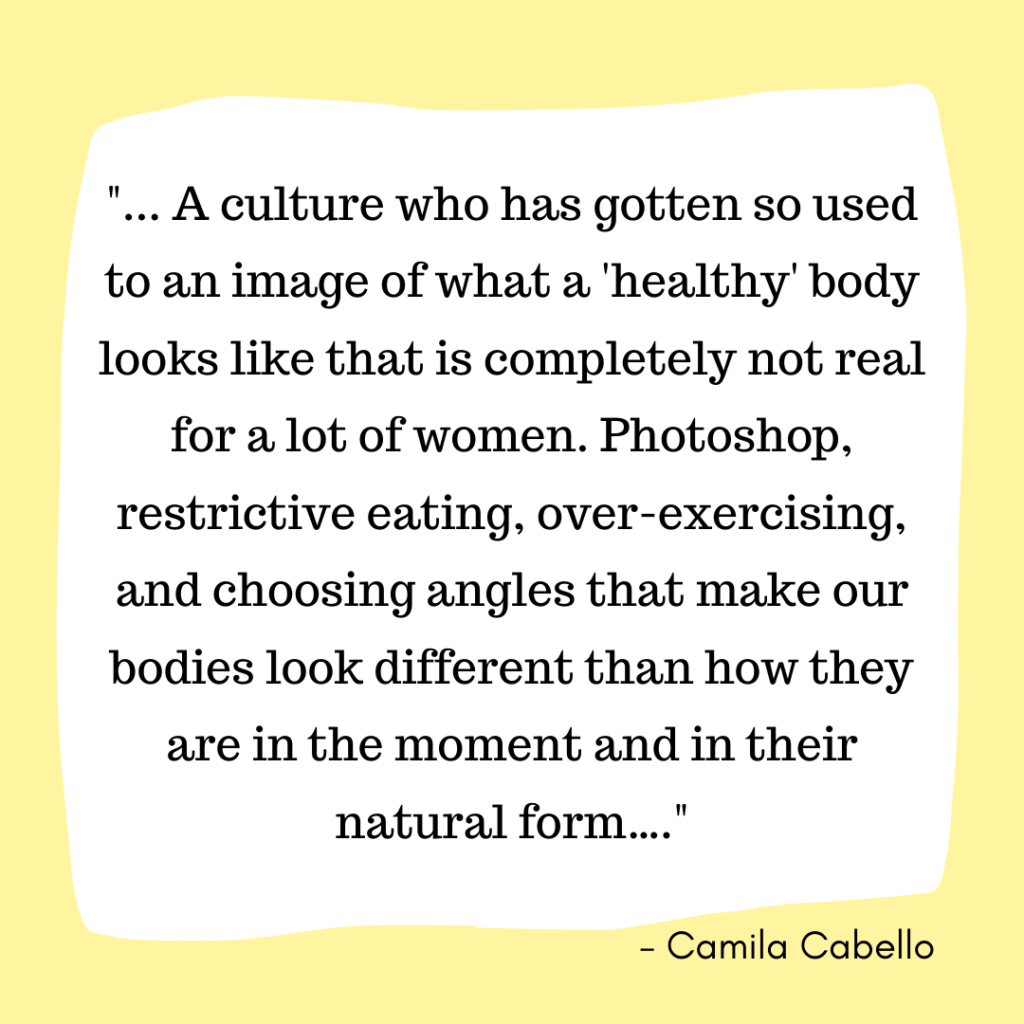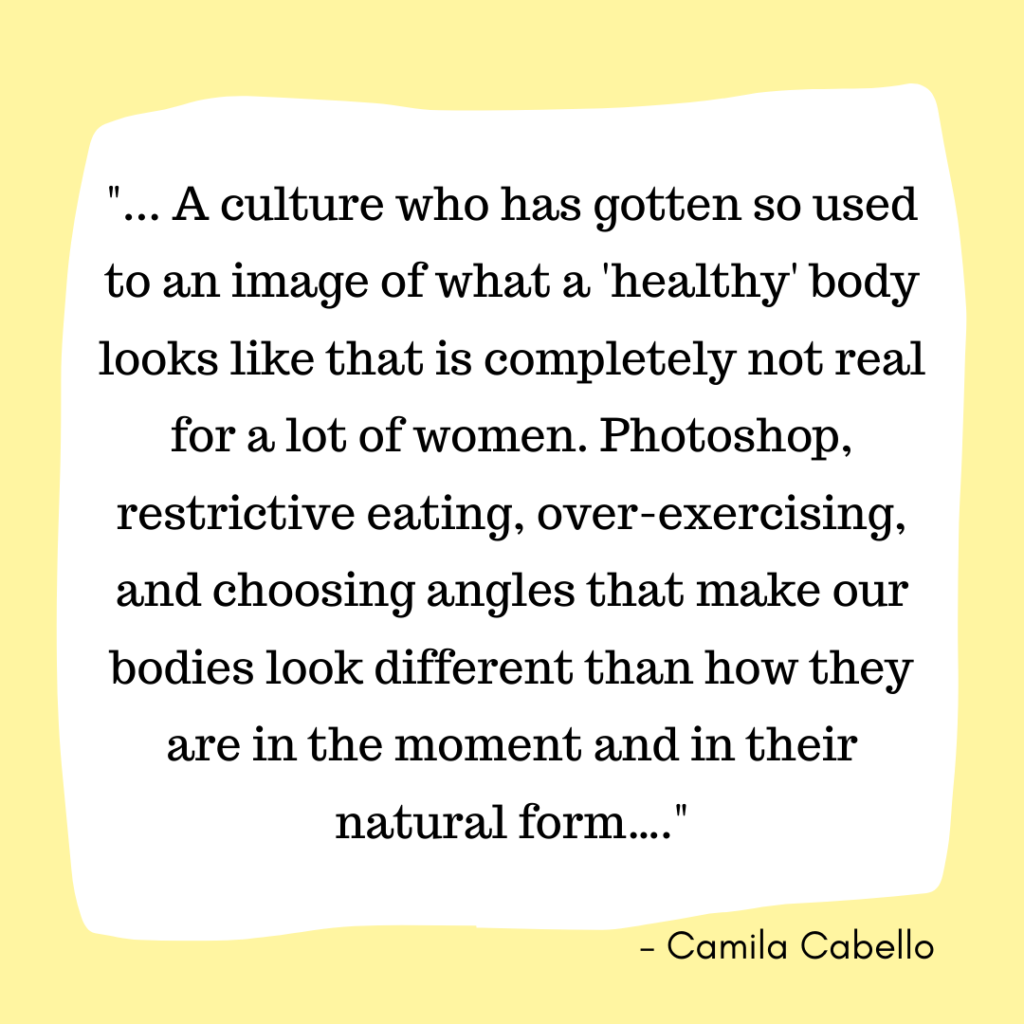Diet culture is always telling you how your body should look and feel and what eating habits people need to have to be truly healthy. It defines healthy in a way that, ironically, isn’t healthy at all.
Some things about diet culture need to be addressed to stop perpetuating certain untrue “healthy” habits. Let’s take a look at a few of the most common myths.
80/20 rule
They make you believe that if you “behave” 80% of the time, you deserve to treat yourself the other 20%. But that alone implies that there are good and bad foods, brings judgment to your food preferences, and amplifies the food reward system (where you reward yourself with food – in this case, you reward restriction with food.)
Believe it or not, it’s a kind of diet, meaning you are told which foods you can and cannot eat. As soon as you have rules to follow, it’s a diet. At first glance, it seems harmless, but when all you’re eating is the food on the “approved” list, you begin craving the foods you love, and you start planning cheat days. It gives you an illusion of balance when really you’re losing touch with your body.
Cheat days
Usually, people turn to cheat days to give them a reprieve from their diets because they find them too restrictive and want a way to still eat the food they want without feeling guilty. Planning to eat foods you don’t allow yourself to eat the rest of the week is a sign that your diet, meal plan, or restrictive eating habits are not sustainable. However, you can have the same guilt-free eating with intuitive eating without limiting yourself or planning cheat days.
Cutting out “bad foods”
You may think you’re doing your body good by cutting out certain foods, like sugars, carbs, and processed foods. In reality, you’re just giving moral value to food and triggering guilt. Some foods can be more nourishing than others, but labeling food as good or bad will simply lead to food obsession, food reward systems, and binge eating.
Tracking your calorie intake
Calorie and food trackers are useless and misleading. When you use a tracker, you’re trusting a program to tell you how much to eat instead of trusting your body. Not all calories are made the same; different nutrients will nourish you differently.
Your body is naturally a perfect alarm clock that tells you when you need food and when to stop eating— without the help of a calorie or food tracker. But when you rely on these trackers, you detach yourself from hunger and satiety cues and only eat to meet a certain number that your app has set for you.
Demonizing emotional eating
Diet culture pushes you to feel bad about eating when you’re emotional and tells you that you should get rid of emotional eating to be healthy. But emotional eating is not something you can or should want to get rid of. Why?
Because emotional eating doesn’t mean you have to lose control over food, it simply means you are getting emotionally fulfilled and satisfied when eating. In fact, emotional eating is ingrained into your life.
I encourage you to learn to understand the emotional ties you may have with food to transform them into a pleasant and fulfilling experience instead of feeling like you’ve “failed” or overeaten. It will allow you to be true to yourself without losing control or feeling guilty.
No food after a certain time at night
Avoiding late-night munching gives you a false sense of control. This gives the false assumption that your metabolism just shuts down or slows after a certain time and that food you eat after this time will immediately turn into fat. But science proves that your metabolism is consistent throughout the day and does not slow down at night.
Hunger should never be ignored because it’s a clear sign that your system needs fuel. Think about your car— if the gas light comes on, you fuel up without concerns.
If you feel like you’ve lost track of your hunger cues, lean into intuitive eating strategies to stabilize your hunger and satiety cues while also learning how to understand your body better.
Thinking that only thin = healthy
One of the most prevalent things that diet culture “teaches” you is that being thin is the only way to be healthy and that if you’re anything but thin, you’re not healthy. But that’s incorrect and toxic. Health doesn’t have a shape or weight. Check this out:

She hit the nail on the head. That’s precisely what diet culture makes you feel about your body and why so many people turn towards restrictive eating instead of tuning into their bodies.
Intuitive eating is the key
Health encompasses two aspects: nourishing your body and nourishing your soul. In order to achieve that, you must satisfy your physical and emotional needs and stop restricting yourself. Intuitive eating is the only approach that allows you to feel in control of food and emotions while growing a healthy relationship with yourself. That means no yo-yoing, no overwhelming cravings, no self-hate.
Going from a life full of food rules to becoming an intuitive eater can be confusing. But if you have the right strategies and tools to help you make a smooth transition, you’ll learn how to stabilize your metabolism, know how to optimize your eating behaviors, understand your body, and maintain your health forever
Your body will thank you for it.
If you’re ready to begin this journey, shoot me an email or book a call! Let’s talk about it.
